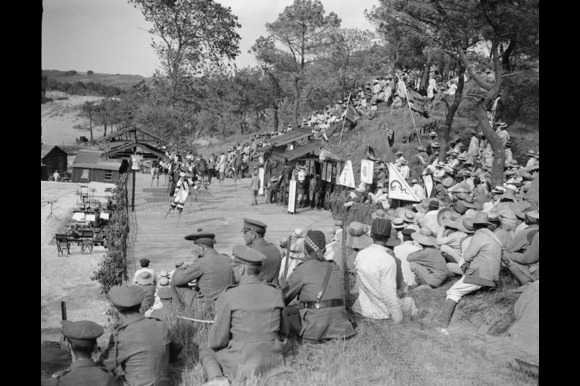North Korea is set to dispatch thousands of workers and military personnel to assist in the reconstruction of Russia’s war-affected Kursk region, according to Russian state media reports citing senior Moscow officials.
Russian Security Council Secretary Sergei Shoigu, following high-level talks with North Korean leader Kim Jong Un in Pyongyang on Tuesday, announced the decision, describing the move as a form of “fraternal assistance.” Shoigu’s remarks were carried by multiple Russian outlets, including the state-run TASS news agency.
According to Shoigu, North Korea will send a “division of builders, two military brigades [of] 5,000 people,” along with 1,000 demining specialists to aid in what he called the “restoration” of the western Russian region of Kursk, which has suffered severe damage during the ongoing conflict with Ukraine.
“This is a kind of fraternal assistance from the Korean people and leader Kim Jong Un to our country,” Shoigu was quoted as saying, in comments also reported by AFP.
The announcement immediately drew sharp criticism from neighboring countries and the broader international community. South Korea’s foreign ministry expressed “grave concerns,” calling the cooperation a breach of United Nations sanctions that bar North Korea from exporting labor and military personnel. Tokyo echoed these concerns, warning that such actions undermine international peace and security.
The US State Department also issued a strong response, telling South Korea’s Yonhap News Agency that the collaboration was “deeply concerning.” A spokesperson said, “The North Korean regime correspondingly is now relying on Russia to provide it with desperately needed funds in exchange for labour and soldier-for-hire schemes.”
This latest development adds to the growing alarm surrounding the increasingly close military and strategic cooperation between Pyongyang and Moscow. For months, intelligence reports and independent assessments have pointed to North Korean troops being actively deployed in Russia to assist with the war effort in Ukraine.
In November of last year, Russia and North Korea signed a mutual defense treaty, pledging to support one another in the event of aggression. Kim Jong Un hailed the agreement as taking their relationship to “a new high level of alliance.” The pact has cemented their cooperation in multiple spheres, including labor, military, and technology exchange.
South Korean intelligence officials estimate that approximately 15,000 North Koreans are currently working in Russia under bilateral industrial cooperation arrangements, generating a significant source of income for the isolated regime in Pyongyang.
Western intelligence agencies previously told the BBC in January that around 1,000 of the estimated 11,000 North Korean troops operating in Russia had been killed within just three months. In April, a South Korean lawmaker claimed the total number of North Korean casualties in Russia had risen to about 4,700, including at least 600 fatalities.
Analysts suggest Pyongyang’s deployment of workers and troops may be financially compensated or rewarded with access to Russian military technology — a move that could significantly strengthen North Korea’s capabilities and further strain global security norms.
In April, both Moscow and Pyongyang officially acknowledged the presence of North Korean forces in Russia — a rare confirmation that prompted renewed condemnation from South Korea and the United States. At the time, Seoul denounced the deployment as “illegal,” arguing that it violated both the UN Charter and multiple UN Security Council resolutions.
Despite the international backlash, Russian and North Korean leadership continue to engage in regular high-level exchanges. During Shoigu’s recent visit to Pyongyang, Kim reaffirmed his nation’s unwavering support for Moscow, pledging to back Russia “unconditionally” on all matters, including the war in Ukraine, according to North Korean state media.
Earlier this year, Moscow also asserted it had regained full control over the Kursk region — a claim that Ukraine has publicly disputed.
As the war in Ukraine drags on and global alliances shift, the Kremlin’s deepening ties with Pyongyang — including labor deployments and military cooperation — are likely to face ongoing scrutiny and condemnation from the international community.






